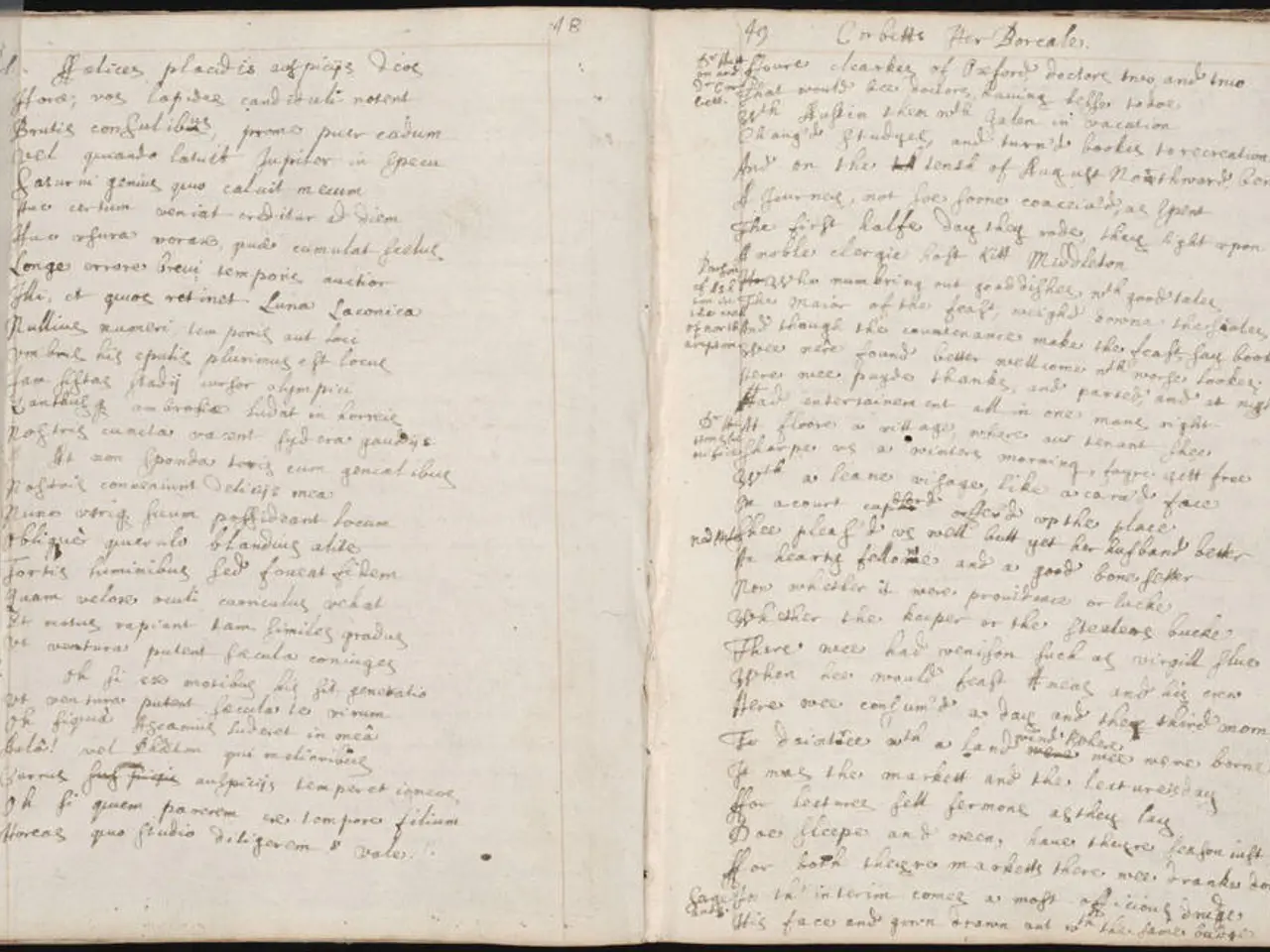Write Your Own Tale: Simply Pen It Down
In the face of personal adversity, a speaker managed to pen 55 pages of their screenplay in just 11 weeks, despite taking time off for a wrist surgery. This remarkable feat is a testament to the speaker's belief in writing during life's bumps in the road.
The speaker's daily writing routine was less than a page per day, but the consistent effort resulted in 55 pages more than they would have written without writing at all. This experience underscores the power of regular writing and its association with increased productivity, frequent creative thoughts, and less struggle with writing.
However, a brief break from writing can lead to a rise in inner resistance, slipping back into procrastination without notice. Writing became a solace and a commitment for the speaker during personal misfortunes, serving as a motivation to commit more fiercely to their craft and follow their inner guidance.
A personal disaster can serve as a catalyst for a more structured writing approach. Writing regularly supports sustaining creativity and lowering anxiety through routine, planning, and measured pacing. Key strategies include daily writing, time blocking, breaking tasks into smaller parts, using productivity tools, freewriting, and prioritising quality over quantity.
On the other hand, binge-writing (intensive, sporadic bursts of writing) demands careful structuring of focus and recovery periods to avoid burnout and block. Strategies for binge-writing include planning and preparing beforehand, using the Pomodoro technique, post-binge recovery, limiting frequency of binges, and practising self-compassion and realistic expectations.
Steven Pressfield, a renowned author, compares artists and entrepreneurs to warriors who fight despite fear. His advice is to keep writing, composing, or shooting film even in the face of personal adversity. The speaker found it challenging but proud of their achievement in writing consistently during emotional challenges.
Inertia, a tendency to remain unchanged, can be both a helper and an obstacle in writing. If you stop writing regularly, it requires more effort to begin again. Greater personal difficulties can throw one off their writing game, but the decision to either stop writing or carry on is a personal choice.
The speaker started taking writing seriously after a car accident, with an inner voice telling them to "Write like your life depends on it." Theodor Adorno once said that writing can become a place to live for a man who no longer has a homeland. The speaker's theory is to take time off from writing and rest, but to have a plan for returning to writing after the break.
In summary, strategies for maintaining writing productivity and reducing self-doubt, writer's block, and burnout differ between writing regularly and binge-writing, but both can benefit from structured approaches focused on consistency, focus, and managing mental energy. A blend of techniques—time management, task prioritization, freewriting, and productivity tools—can be tailored to the individual’s preferred style to maintain productivity and creative well-being.
- The speaker's remarkable feat of penning 55 pages of their screenplay in just 11 weeks, despite a wrist surgery, showcases the power of writing during life's challenges, reinforcing the importance of daily writing for increased productivity and personal growth.
- Steven Pressfield's comparison of artists and entrepreneurs to warriors who fight despite fear underscores the speaker's commitment to writing consistently during emotional challenges, aligning with Pressfield's advice to keep writing in the face of adversity.
- The speaker's theory of taking a break from writing and resting, but having a plan for returning to writing after the break, highlights the importance of balance in maintaining writing productivity and self-development, echoing Adorno's sentiment that sometimes writing can become a refuge for individuals who have lost their homeland.




